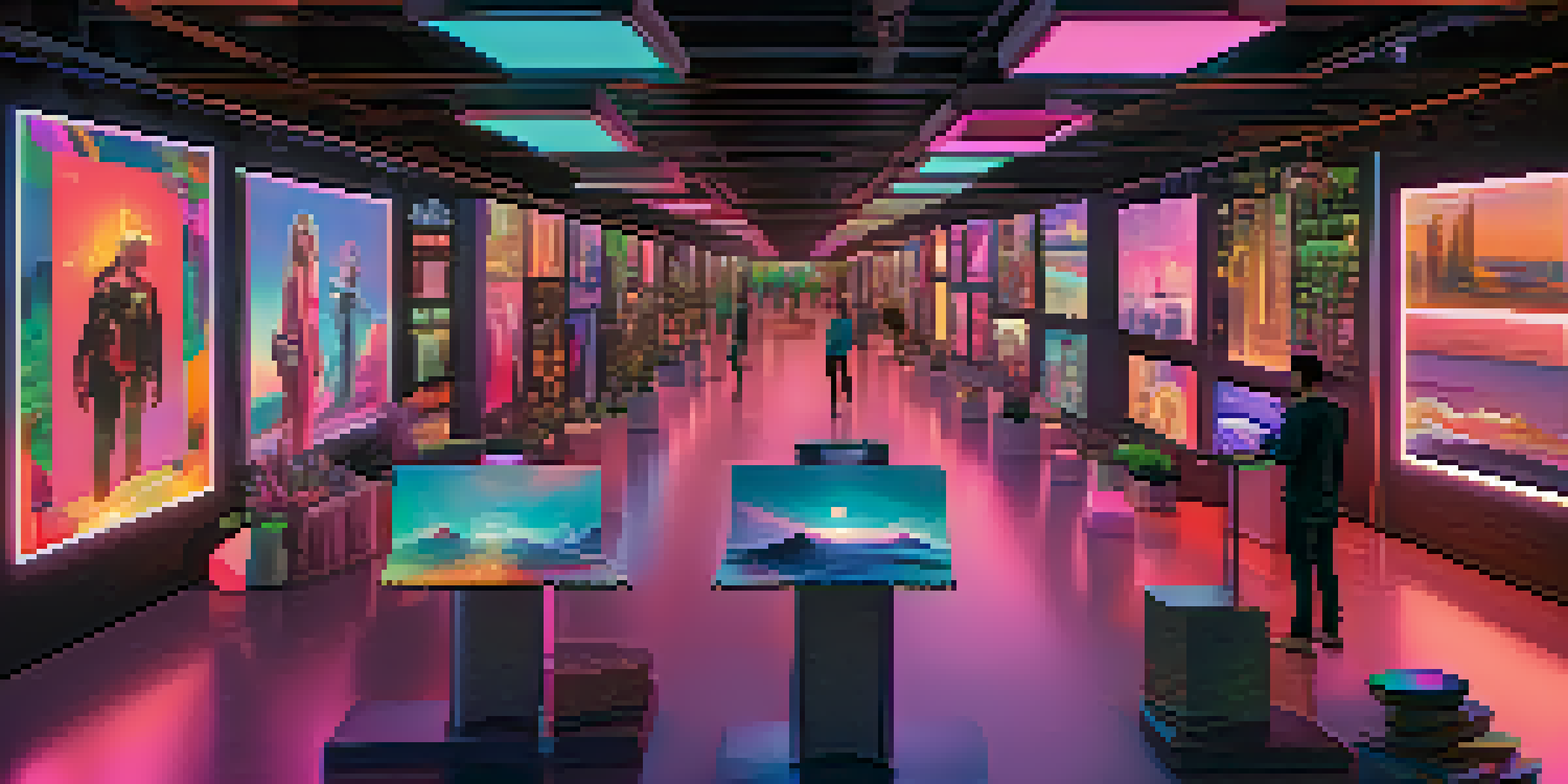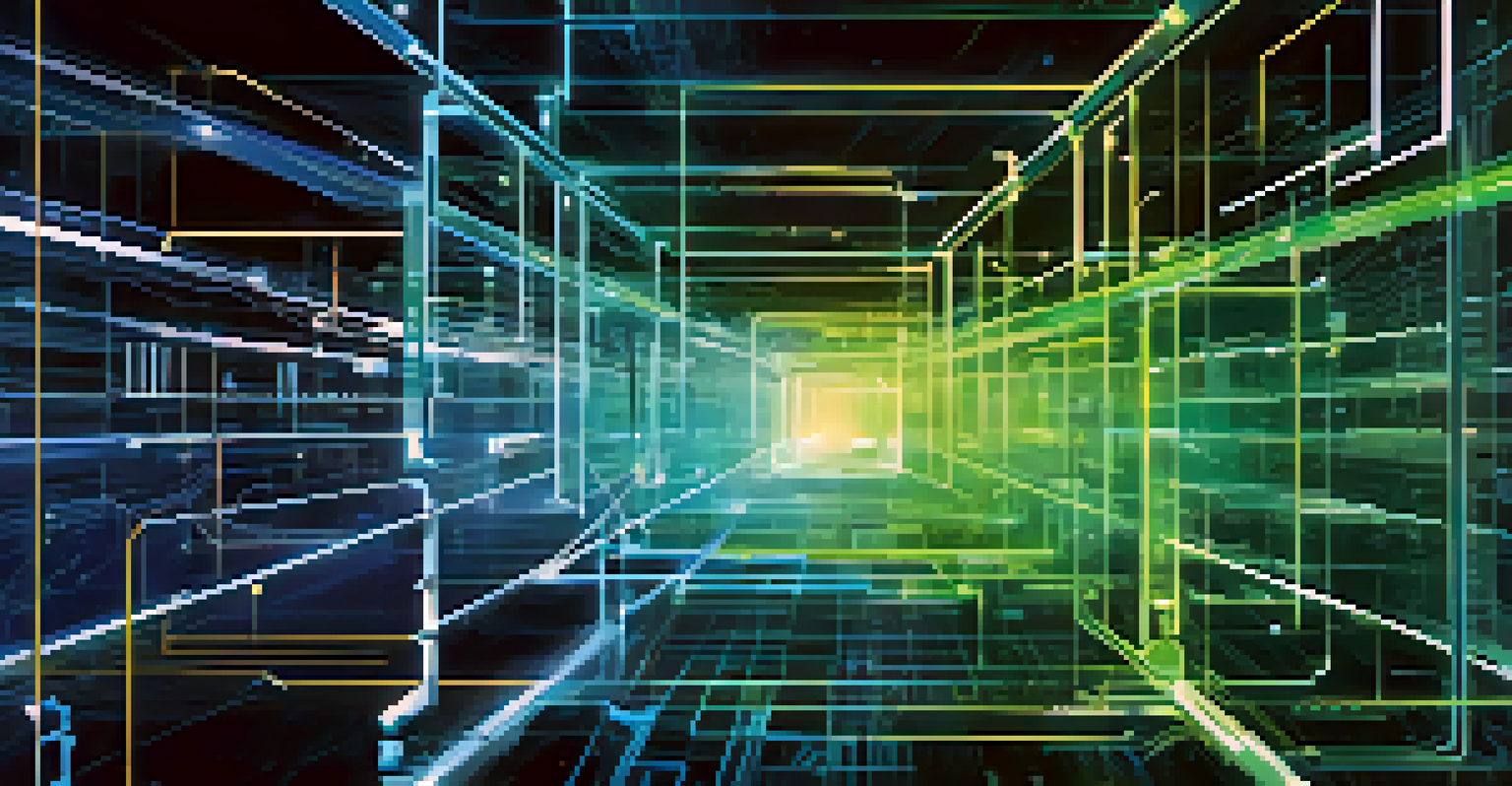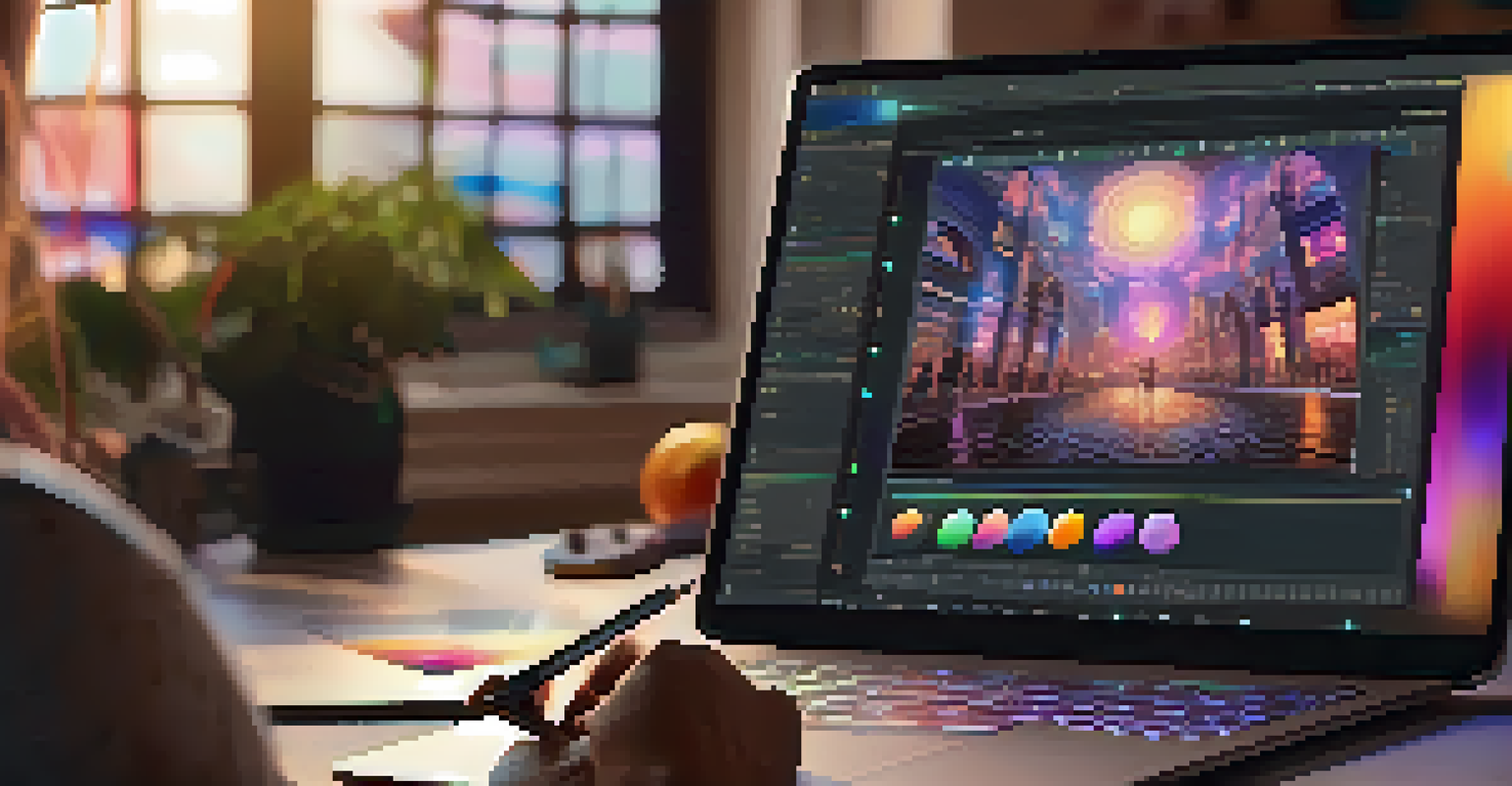The Role of Smart Contracts in Digital Ownership via NFTs

What Are Smart Contracts and How Do They Work?
Smart contracts are self-executing contracts with the terms directly written into code. Think of them as digital vending machines: you put in your money and select a product, and the machine automatically delivers it without needing a cashier. By using blockchain technology, smart contracts ensure that transactions are secure, transparent, and irreversible, making them reliable tools for digital ownership.
Smart contracts are like a digital vending machine: you put in your money and select a product, and the machine automatically delivers it without needing a cashier.
When you purchase an NFT, a smart contract is created to govern the ownership transfer. This contract not only verifies the transaction but also contains details about the NFT, such as its history and provenance. This level of transparency is crucial in the digital world, where proving authenticity can often be challenging.
Moreover, smart contracts can simplify complex processes. For instance, they can automate royalty payments to artists every time their NFT is sold in the future. This ensures creators continue to benefit from their work long after the initial sale, making the digital art marketplace more equitable.
NFTs: The Bridge Between Digital Assets and Ownership
Non-fungible tokens (NFTs) represent unique digital assets, whether it's artwork, music, or virtual real estate. Unlike cryptocurrencies, which are interchangeable, NFTs are one-of-a-kind—imagine owning an original painting versus a print. This uniqueness makes NFTs ideal for representing ownership of digital content in a way that was previously impossible.

The rise of NFTs has created a new landscape for artists and creators, allowing them to monetize their work in ways they couldn't before. Every NFT is tied to a smart contract that verifies the owner's rights, ensuring that they have legitimate ownership. This shift is particularly empowering for digital artists, as it grants them control over their creations.
Smart Contracts Enable Secure Transactions
Smart contracts utilize blockchain technology to ensure secure, transparent, and irreversible transactions in the digital space.
Additionally, NFTs open up exciting possibilities for collectors. They can now own digital assets with verifiable authenticity, which adds value to their collections. Just like collecting rare stamps or coins, owning an NFT provides a sense of prestige and connection to a unique piece of digital culture.
How Smart Contracts Enhance Security in NFT Transactions
Security is paramount in the digital world, and smart contracts significantly enhance it. By utilizing blockchain technology, these contracts provide a tamper-proof way of recording transactions. Once a smart contract is deployed, its code cannot be altered, which minimizes the risk of fraud and ensures that ownership records are accurate.
The future of ownership is decentralized, and it empowers creators to maintain control over their work while fostering a more sustainable ecosystem.
Moreover, the decentralized nature of blockchain means that there is no single point of failure. This characteristic protects against hacking and unauthorized alterations, making it much safer for users to buy, sell, or trade NFTs. For example, if you were to sell an NFT, the smart contract would automatically verify and execute the transaction without needing a third party.
Additionally, the transparent nature of smart contracts allows all participants in the network to verify the legitimacy of transactions. This transparency builds trust, essential for fostering a healthy digital marketplace. As users become more confident in the security of NFTs, the demand for these digital assets is likely to grow.
Decentralized Ownership and Its Implications for Creators
Decentralized ownership is a game-changer for creators, allowing them to maintain control over their work. With smart contracts, artists can embed specific terms related to their NFTs, such as how they want to be compensated for future sales. This means that even after selling an NFT, creators can still receive a percentage of the profits, ensuring they benefit from their work long-term.
This model not only empowers artists but also fosters a more sustainable ecosystem. Instead of relying on intermediaries like galleries or record labels, creators can connect directly with their audience. This shift allows for a more personal relationship and can lead to stronger community support, as fans feel more invested in the success of the artists they love.
NFTs Empower Digital Creators
Non-fungible tokens (NFTs) give artists control over their work and the ability to monetize it directly, bypassing traditional intermediaries.
Furthermore, decentralized ownership encourages diversity in the types of art and content being created. Artists from all backgrounds can enter the market without facing the barriers traditionally imposed by gatekeepers. This inclusivity can lead to a rich tapestry of creativity that reflects a broader range of voices in the digital space.
Challenges and Limitations of Smart Contracts in NFTs
While smart contracts offer numerous advantages, they also come with challenges. One major concern is the potential for bugs in the code, which can lead to unintended consequences. For example, if a smart contract contains a flaw, it could be exploited by malicious actors, resulting in financial loss for the NFT holders.
Moreover, the legal implications of smart contracts remain somewhat unclear. Since they are relatively new, regulations are still evolving, and it’s uncertain how they will be treated in various jurisdictions. This ambiguity can create hesitation for potential buyers and sellers in the NFT market, as they navigate the complexities of ownership rights and responsibilities.
Additionally, the environmental impact of blockchain technology is an ongoing debate. Many blockchain networks, especially those that use proof-of-work protocols, consume significant energy, raising concerns about sustainability. As the NFT market continues to grow, finding eco-friendly solutions will be essential to address these issues and promote responsible digital ownership.
The Future of Smart Contracts and NFTs in Digital Ownership
The future of smart contracts and NFTs looks promising, with continuous advancements in technology. As developers create more efficient and sustainable blockchain solutions, the NFT space is expected to expand. We may see an increase in the types of assets that can be tokenized, further blurring the lines between digital and physical ownership.
Moreover, as awareness grows, more creators are likely to explore NFTs as a viable medium for their work. This could lead to an explosion of innovative digital content, with unique applications in various industries such as gaming, music, and virtual events. Imagine attending a concert and owning a piece of that experience through an NFT that also grants you exclusive access to future shows.
Decentralized Ownership Fosters Diversity
Decentralized ownership through NFTs encourages a wider range of artistic expression and allows creators from diverse backgrounds to enter the market.
Additionally, as regulations become clearer, it may provide a safer environment for buyers and sellers alike. This clarity can lead to increased trust in the NFT market, encouraging more people to participate. In the long run, smart contracts may revolutionize how we think about ownership, making it more accessible and equitable for everyone.
Conclusion: Embracing the Potential of Smart Contracts and NFTs
In conclusion, smart contracts play a pivotal role in shaping the future of digital ownership through NFTs. They not only provide a secure framework for transactions but also empower creators and collectors alike. By understanding and embracing this technology, we can unlock new opportunities in the digital landscape.
As the NFT market continues to evolve, it's essential to stay informed about the developments in smart contracts and how they affect ownership. Engaging with these concepts will enable us to navigate the complexities of this emerging field, helping us to become more responsible digital citizens.

Ultimately, the combination of smart contracts and NFTs represents a significant shift towards a more decentralized and equitable system of ownership. By leveraging these tools, we can foster a vibrant community of creators and collectors, pushing the boundaries of what is possible in the digital realm.